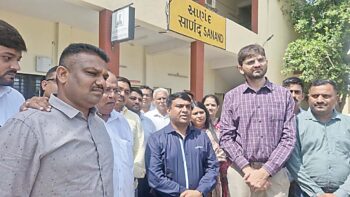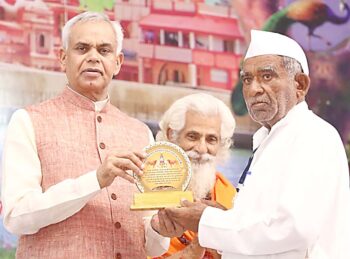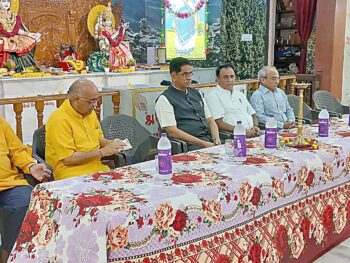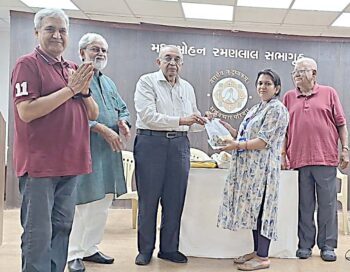GCCI Commends Gujarat Govt. on Development Week and New Textile Policy
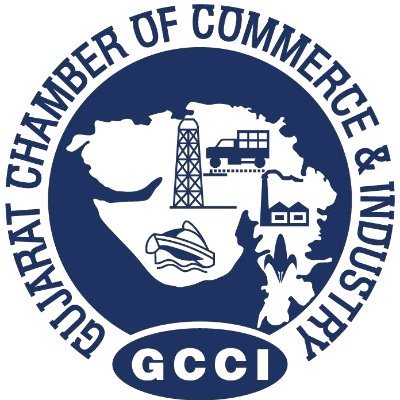
Ahmedabad ,Gujarat Chamber of Commerce and Industry (GCCI) extends its commendation to the Gujarat government for the ongoing celebration of Development Week from 7th October to 15th October. This annual event honours the significant contributions of Prime Minister Narendra Modi to the state’s growth during his tenure as Chief Minister.
In alignment with this celebration, the government has introduced a comprehensive textile policy aimed at revitalizing the textile sector, thereby demonstrating a strong commitment to fostering growth, creating employment opportunities, and promoting sustainable practices within this vital industry.
We express our sincere gratitude to the following officials for their invitation to GCCI officials and members for the unveiling of the textile policy: Shri Bhupendra Patel, Hon’ble Chief Minister; Shri Balvantsinh Rajput, Hon’ble Industries Minister; Shri Harsh Sanghavi, Minister of State; Ms. Mamta Verma (IAS), Principal Secretary of the Industries and Mines Department; Shri Sandip Sagale (IAS), Industries Commissioner; and Dr. Rahul Gupta (IAS), Hon’ble Vice Chairman & Managing Director of GIDC. The event was attended by GCCI President Shri Sandeep Engineer and Hon’ble Secretary Shri Gaurang Bhagat, along with a significant number of GCCI members.
The new policy introduces a series of fiscal incentives designed to enhance various segments of the textile industry, including garments, technical textiles, and processing activities. Key measures include:
- Capital Subsidy: A subsidy ranging from 10% to 35% on eligible fixed capital investments, capped at ₹100 Crore.
- Credit-Linked Interest Subsidy: An interest subsidy of 5% to 7% for a period of 5 to 8 years.
- Power Tariff Subsidy: A reduction of ₹1 per unit (kWh) for five years to promote renewable energy usage.
- Payroll Assistance: Monthly support for workforce salaries ranging from ₹2,000 to ₹5,000 per worker for a duration of 5 years, along with initiatives for Self-Help Groups (SHGs) and measures for quality certification and technology acquisition.
These incentives are anticipated to significantly enhance the competitiveness of the textile sector, fostering innovation and operational efficiency.
GCCI acknowledges the policy’s focus on new industrial units, which are poised to create substantial employment opportunities. Units registered under EPF scheme employing at least 4,000 workers including a minimum of 1,000 women will be eligible for enhanced capital and interest subsidies, along with extended payroll support. This strategic approach aims to provide essential stability for labor-intensive operations.

